AI and Conversation Intelligence for Behavioral Healthcare
At first glance, it may seem like artificial intelligence (AI), conversation intelligence software, and behavioral healthcare have nothing in common. However, AI-powered conversation intelligence tools are helping behavioral healthcare professionals connect with those in need faster. With today’s worsening mental health and substance abuse issues, making these connections is vital.
When more people suffering from behavioral health crises successfully connect with a behavioral healthcare professional when they reach out, more people and families get the help they need. That’s essential for these individuals because in many cases it can be a matter of life or death.
In fact, according to the National Center for Drug Abuse Statistics, nearly 100,000 people die from drug overdoses every year in the United States. Add to that the almost 141,000 Americans who die from alcohol use disorders, and that’s nearly 250,000 people in America each year who need behavioral healthcare for addiction in just one year. When you consider mental health disorders like anxiety and depression, that means countless more who need help.
For these individuals, getting the courage to ask for help can be difficult. When they reach out, it’s imperative they are given immediate and personalized attention. Just a few minutes can drastically change outcomes in this industry and time is of the essence.
This is where AI-powered tools like conversation intelligence and conversation analytics come into play.
What is Conversation Intelligence Software?
Conversation intelligence uses AI to analyze conversations like phone calls, texts, and chats. From this analysis, the software can then automatically compile, sort, and group data. Organizations can then automatically analyze and glean valuable data from a large number of conversations at a very fast rate.
Without conversation intelligence software, much of this work has to be performed manually. Depending on the size of the organization, this can eat up a lot of time. Not only does this wasted time delay prospective patients connecting with someone, but it also mandates employees to do these tedious, time-consuming tasks instead of using their skills more effectively on higher-level needs.
Easily Accessible Intent Data and Keyword Details
Using AI-powered conversation intelligence tools, teams can easily view organized, tagged, and scored data. Sales, marketing, and admissions teams can jump to key parts in conversations where automatically-identified keywords and topics are discussed. Teams can get down to analysis and follow-up faster when they don’t have to spend hours sifting through data.
This AI-powered efficiency helps organizations do more with less, and in so doing stretches their budget. Marketing and sales teams are also empowered to make truly data-backed decisions that consistently increase productivity and efficiency.
When you pair conversation intelligence tools with AI-powered marketing automation tools teams can also execute automated follow-ups based on data from conversations around customized parameters. This saves teams even more time and enables them to execute higher-level tasks.
These tools are beneficial for just about any organization; however, for behavioral healthcare contact centers with a medium-to-large volume of inbound calls and communications, AI-powered conversation intelligence software (paired with marketing automation tools) is invaluable. It saves agents, managers, and entire teams from hours of mundane, time-consuming tasks and delivers a better customer experience.
Saved time in behavioral healthcare means professionals have more time to spend on what really matters–connecting with patients and families. With the insight provided by conversation intelligence, they can personalize these conversations and maximize the time.
How Does Conversation Intelligence for Behavioral Healthcare Work?
Conversation intelligence works by first recording and transcribing phone conversations into text. Next, it takes that conversation and assesses it. The assessment and next steps triggered are based on questions, parameters, and workflows you set and customize. For other conversations like chats and texts, the words are analyzed too.
Conversation intelligence tools aren’t all the same. Some platforms are more robust, offering a breadth of features and the ability to scale with a growing organization. Others are more focused on delivering one specific feature.
Types of AI-powered Software
Conversation intelligence is just one type of AI-powered software, but there are many. From the navigation in your car and self-driving cars to automated financial investing and writing assistance, AI is a powerful and wide-ranging technology that helps organizations and individuals streamline processes and do more with less.
Typically, organizations find using a few different types of AI-powered tools leads to optimal outcomes. Finding one main platform to send all of your data is important. You’ll want to be sure your main platform allows for integrations with the tech stack you already use.
CallTrackingMetrics software integrates with popular sales and marketing software like HubSpot, Google Ads, Google Analytics, Facebook, and more. We also have an open API that makes for an easy connection to any software developers love.
Chances are, if you’re in marketing, sales, or customer service, you’ve most likely used conversation intelligence and other types of AI-powered software, even if you didn’t realize it at the time. This software is beneficial for any company that wants to close data gaps for the full attribution picture, improve efficiency, and provide exceptional customer experiences.
And, if you’re part of a behavioral healthcare team, you probably are using AI-powered tools like conversation intelligence every day to make those vital connections faster and more meaningful.
AI & Behavioral Healthcare
Behavioral healthcare teams have a lot riding on them. As drug and alcohol abuse continues to grow each year and so, too, are the number of people calling for help, it’s their jobs that often contribute to the outcome of some serious situations.
In addition, customer service is one of the areas facing a shortage of employees. The Bureau of Labor and Statistics reports that there are nearly 390,000 job openings in customer service projected each year for a decade. This means teams need to be able to do more with less while still providing prompt and efficient customer service to anyone who reaches out.
Not only do these teams have to do more with less, but saving time while effectively talking to the prospective patient is also essential. The customer service rep who answers shouldn’t have to ask the same questions the last agent did or transfer the call a few times to find the right agent, or even put someone on hold to get information if all agents are busy.
Frustration could lead a potential patient to hang up. Many times these callers aren’t in a great state of mind–if they hang up, they may never call back. It’s crucial to connect whenever someone reaches out. AI-powered tools like conversation intelligence help behavioral healthcare teams make these crucial connections with patients quickly and thoughtfully.
Let’s take a look at some of the ways AI-powered tools like conversation intelligence support the behavioral healthcare industry–and their patients–to succeed.
4 Benefits of Conversation Intelligence and AI-powered Tools for Behavioral Healthcare
The capabilities of AI software and conversation intelligence are incredible and diverse. As mentioned, choosing robust software with an array of features that can seamlessly integrate with other platforms and scale with your company is necessary.
This technology is rapidly evolving, so be on the lookout for evolving features and benefits. Here are some of the most important benefits of conversation intelligence and AI-powered software in the behavioral healthcare industry:
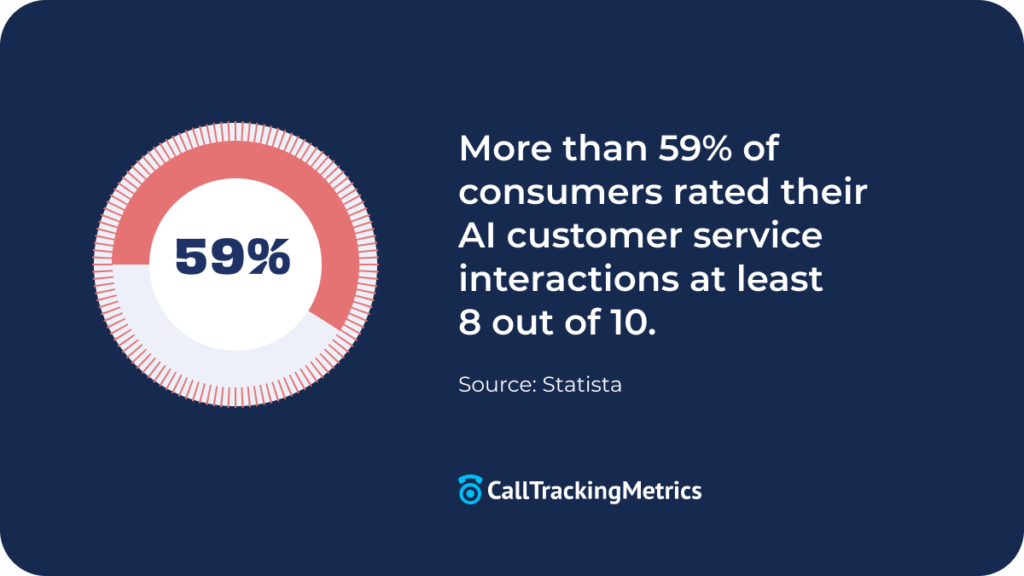
1. Deliver Exceptional Experiences for Patients and Families
The experience from the first contact to a year after treatment is important in behavioral healthcare. It’s vital for addiction treatment and mental health organizations to deliver the best possible experiences–because, sadly, it could be a matter of life or death.
AI-powered tools, like certain marketing automation tools, make it possible to bring these optimal experiences to patients and their families throughout the entire journey.
Virtual agents and chatbots
Connecting with patients and prospects in their time of need and vulnerability are essential to getting them the help they need and deserve. Even if you’re able to keep agents active 24/7, what happens when all the agents are busy?
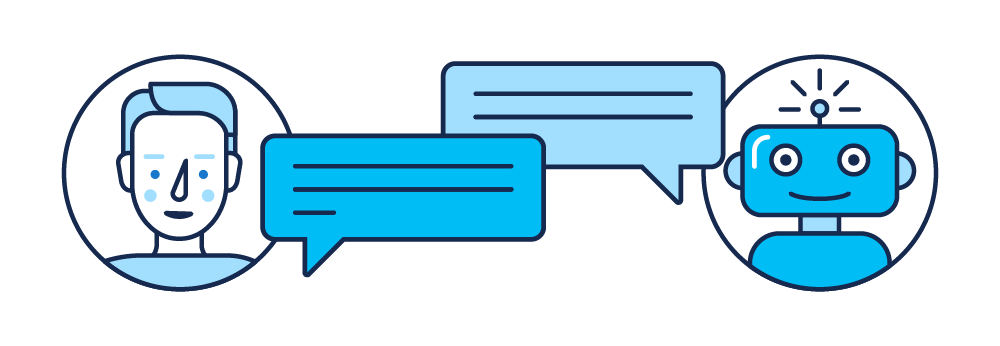
Virtual agents and chatbots can often fill this need. Chatbots can offer a more humanized touch to virtual conversations when a live agent isn’t available. Chatbots can answer basic questions, assess responses for certain keywords and make personalized suggestions based on those keywords.
Virtual agents further humanize customer service interactions and can schedule intake appointments, send reminders, and do more to provide fast and effective customer service. Intelligent virtual agents use natural language processing (NLP) along with predefined answers and rules to provide basic customer service so they also stay on brand and compliant.
FormReactor
It’s important to provide multiple ways for prospective patients to reach out. Gathering key details about everyone engaging is also important. FormReactor is a form that is embedded on your website. This form can be customized to determine key initial information like is the visitor a person seeking treatment for themselves or a family member.
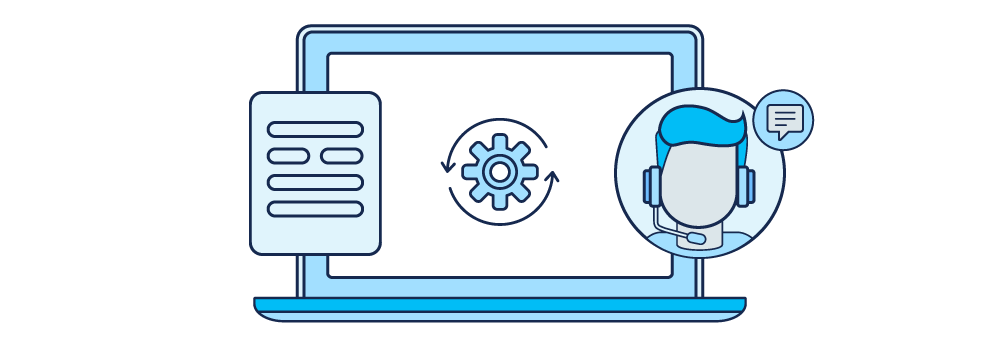
This information can then automatically trigger the next steps. These can be routing the call to the agent who is most knowledgeable about the caller’s problem, a follow-up text message, and more.
2. Save Time and Improve Efficiency
Repetitive, tedious, and time-consuming tasks are automated to save time and improve efficiency. With these tools, teams no longer have to sift through piles of data to get to the important information or manually prioritize and execute the next steps.
AskAI
One conversation intelligence feature offered at CallTrackingMetrics (CTM) is AskAI powered by ChatGPT. With AskAI, teams use a set of predetermined questions that are automatically answered after the call, chat, or text conversation. AskAI analyzes the conversations and instantly answers the posed questions. This can provide valuable information and save time.
These questions can help teams to:
- Prioritize calls and lead follow-ups
- Connect with bottom-of-the-funnel leads faster
- Ensure personalized interactions with customers
- Score calls and leads automatically
- Prompt next steps like a follow-up text
Some of the most-asked questions for AskAI include:
- Was this a good call?
- What was the intent of this caller?
- Is this a good lead?
- Can you summarize this call in two sentences?
- Was this caller happy?
- Did this call result in a conversion?
With AskAI, answers to the questions you choose will be automatically populated into an easy-to-view dashboard. The next time that person reaches out, the agent responding will know in an instant what their prior communications have been and the outcomes.
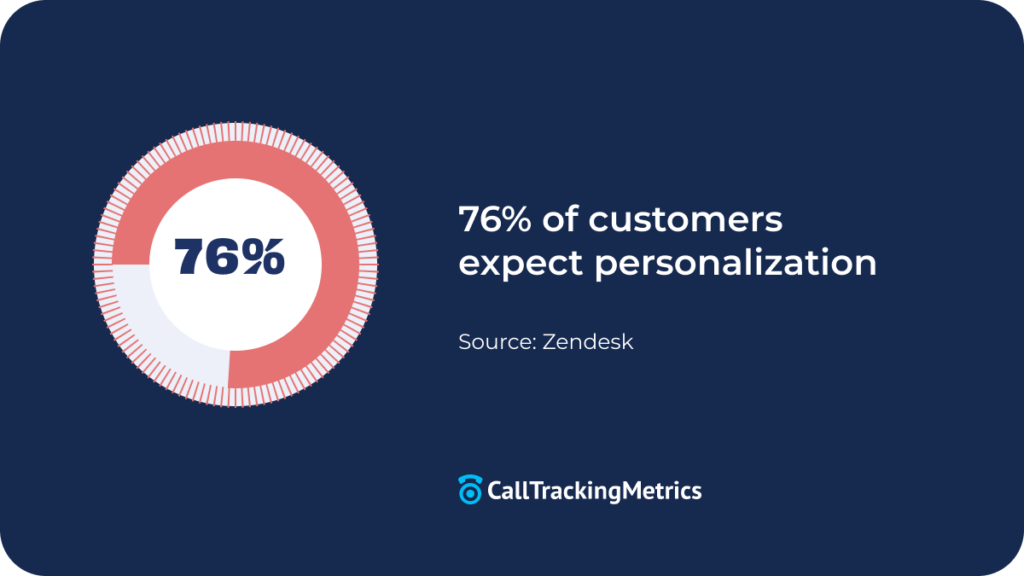
This not only saves time but also helps agents provide personalized communications while eliminating frustration with agents repeating questions for information customers have already shared.
In the behavioral healthcare industry, this is particularly important. Callers can become easily frustrated, so again, time is of the essence.
Smart Router
Data gathered with conversation intelligence can be used in conjunction with tools like the Smart Dialer, to prioritize and execute callbacks as soon as live agents are available. Agents no longer spend time calling back numbers that don’t answer, wrong numbers, or unqualified callers. Instead, these callbacks are placed in order of priority and assigned to the best suited to meet the patient’s needs.
GeoContact
This tool helps organizations, like behavioral healthcare groups with multiple locations, build trust with their patients. With GeoContact, the phone number displayed can be based on a visitor’s geographic location. For example, a treatment center with locations in Florida, Pennsylvania, and Tennessee can use GeoContact to show a number local to that specific area. Someone calling from a town in Florida would see a number local to that area, while another person calling from Pennsylvania would see one local to their area. This is possible by using it with dynamic number insertion (DNI).
Softphone
CTM’s softphone is software that enables voice-over-Internet Protocol (VoIP) telephone calls. This lets you make and receive calls from your laptop, desktop, or any device connected to the internet. The Softphone enables employees to work from anywhere. This flexibility helps behavioral healthcare organizations hire agents and counselors available at varied times to provide round-the-clock support and communication.
Contact center managers can easily manage remote workers from a dashboard that shows what remote workers are doing and how successful their calls are at a glance.
The information also helps both teams get a better understanding of their ideal customer and their needs, wants, problems to be solved, online behavior, and more.
3. Reach More Patients and Families in Need
Connecting with prospective patients and their loved ones whenever they reach out is vital. So is connecting with them before they take action. There are multiple touchpoints in the buyer’s journey and each should have targeted, thoughtful messaging and campaigns. Conversation intelligence and conversation analytics give you deeper insight into your prospect.
In this industry, the right message, at the right time, –on the right channel–is crucial. AI-powered conversation intelligence gives you insight into which ads, campaigns, keywords, and channels are resonating best with your audience. Marketing teams can fine-tune messages and find the best times and places to connect people to the help they need than ever before.
Multi-touch attribution
Marketing attribution, like multi-touch attribution models, shows you which touchpoints on your customers’ journey prompt them to take different actions. It reveals which ads grab their attention, which they engage most with, and which make them convert.
This enables marketing teams to better understand the target audience and how to connect with them. When behavioral healthcare organizations want to build trust with prospective patients and their families, knowing what to say, how to say it, and where to connect with them is indispensable.
Using marketing attribution tools and call tracking together closes data gaps so you get a full view of both online and offline activity. You get closed-loop attribution and a true picture of how your marketing efforts are working.
Keyword Tracking
Tracking which keywords are driving the most engagement lets marketers know where to focus ad spend and where to pull back. But in addition to this money-saving benefit, it also helps marketers and content writers further understand the voice, tone, and language resonating the best.
Integrations
Seamless connections with Google Ads, Google Analytics 4 (GA4), HubSpot, Salesforce, and more tech stack favorites seamlessly put all of your data in one place so you can see everything at a glance. No more jumping back and forth between compiling data.
4. Prove ROI and Make Truly Data-backed Decisions
AI-powered tools and software put a wealth of data in your hands. With data on how every ad, campaign, channel, and even keyword is performing, marketing teams can finally make truly data-backed decisions and drive their strategy.
With this inside information from your customers’ actual conversations and interactions, you’ll get the data to back up the decisions you make. You’ll also be able to confidently –and consistently– prove ROI.
Omnichannel Communications
Using conversation intelligence across all channels ensures your omnichannel communications are giving you a comprehensive view of your prospective patients. When you use call tracking along with your other attribution efforts you get a full picture of their activity to assess.
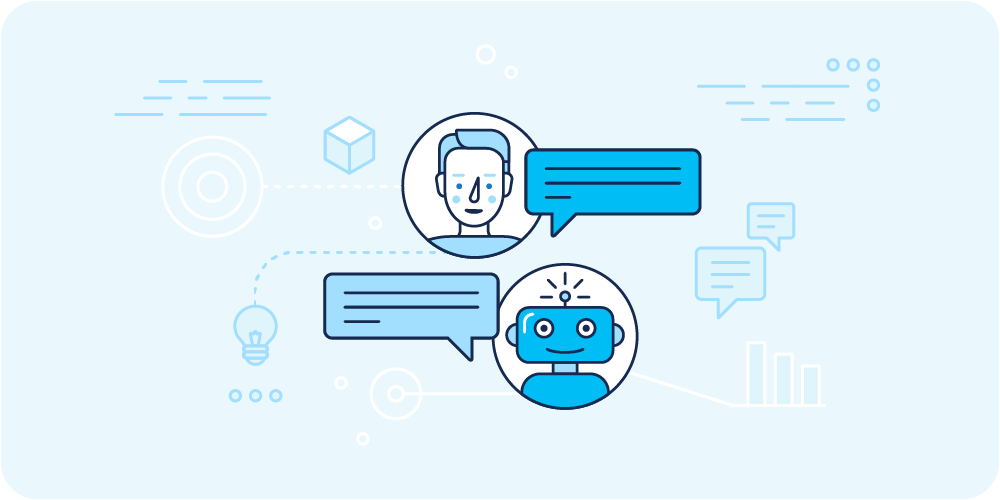
Analytics and Reporting
Compiling all of your data in one place, in one easy-to-view dashboard, and being able to create visually appealing reports that clearly communicate ROI is a great benefit of AI-powered tools. When information is automatically sorted and categorized, you’ll know at a glance what’s working and what’s not. Robust analytics and reporting make this simple.
Coaching and Training
With information about what the most successful customer service reps are saying, managers can use this feature to help coach agents who may be struggling and train new employees.
Supporting Behavioral Healthcare Teams
Today, there are many AI-powered tools like conversation intelligence that support behavioral healthcare organizations to connect with, and help, more people every day. CallTrackingMetrics is proud to partner with many behavioral healthcare organizations to support them in providing fast and effective communication with their patients–all the way through their healing journey.
Curious to see how our conversation intelligence features in action? Book a Demo and see for yourself.